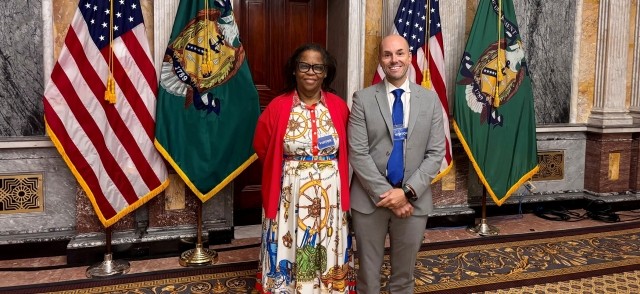Advocating for modernizing CTR, SAR reporting thresholds
Credit union perspectives on modernizing Currency Transaction Reports (CTRs) and Suspicious Activity Report (SARs) were front and center as part of a Treasury roundtable on this issue Wednesday. America’s Credit Unions was one of only four financial services associations to join with federal law enforcement agencies and Treasury leadership at the meeting to help identify effective strategies and needed changes. Head of Compliance Marilyn Barker and Regulatory Advocacy Senior Counsel Luke Martone took part in the high-level discussions that included representatives from the FBI and Department of Homeland Security.
The two reinforced that modernizing CTRs and SARs would help shift credit union resources toward serving members and communities while continuing to protect against financial crime. Financial institutions are required to file CTRs with the Financial Crimes Enforcement Network (FinCEN) within 15 calendar days after a currency transaction of more than $10,000. SARs are filed with FinCEN if a financial institution suspects a transaction of more than $5,000 is related to fraud, money laundering, or other illegal activities.
Neither threshold has been updated since the 1972 enactment of the Bank Secrecy Act. Modernizing SAR and CTR thresholds is a consistent priority for America’s Credit Unions, especially in the new administration.
It was one of the top subjects covered in engagement with the incoming administration in January, and America’s Credit Unions and leagues support legislation to raise the threshold to $30,000 and would include continuing adjustments for inflation every five years.
America’s Credit Unions has also called on FinCEN to raise the SAR threshold to $10,000.
Beyond raising the thresholds, America’s Credit Unions highlighted persistent problems with the reporting forms themselves and suggested practical steps Treasury can take to improve them.
